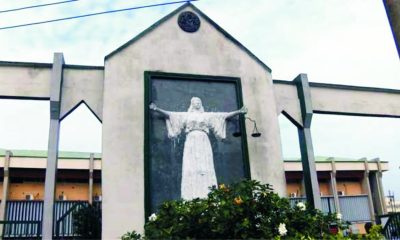Business
Nigeria’s Housing Deficit’ What Nigeria’s Housing Deficit’ What Hope In 2010?
One major area that posed so much challenge to Nigeria’s development is the area of housing and property development. Virtually every city in Nigeria is faced with the challenge of affordable accommodation for its inhabitants, particularly those in Lagos, Port Harcourt and Abuja which could be said to be the worst hit.
According to the world bank estimates, Nigeria needs to produce about 720, 000 housing units annually for the next 20 years, so as to be able to close the gap in her housing demand and supply.
The Minister of State for Works, Housing andUrban Development, Grace Ekpiwhre in a press statement recently posited that only 19.2 household in Nigeria live in their own homes.
In some highly populated cities like Lagos, statistical data have revealed that 65 percent of the 15 million residents of the city live in rented apartments, and spend over 50 per cent of their monthly earnings on house rent.
The same could also be said of the Federal Capital Territory (Abuja), Port Harcourt, Enugu as well as other major cities across the country where income earners spend a very higher percentage of their income on rent.
To make matters worse on the provision of affordable housing, land it self has become extremely difficult to acquire, and various land owners have tended to take advantage of the situation to keep prices at cut throat level, where as the average income earner, especially the junior public servants who depend on monthly salary can hardly acquire a plot of land, even if he had to save 50 percent of his monthly salary.
In all these, government, both at the federal, state, and local government have not really taken giant steps towards addressing the matter, even if it means granting loans for housing to workers enmass.
It is for these reasons that the efforts put up by President Umaru Yar’dua on the land reform agenda is most commendable because of some notable impediment it is viewed to address in respect to home ownership and access to land.
The land use act was promulgated as the law use decree in 1978 by the military government under Chief Olusegun Obasanjo, and is seen or viewed as a major obstacle to real estate development business.
Report citing the United Arab Emirate example quoted Abdul Kadiri of Ark Gold properties of advising Nigeria to go ahead – long for such reform for housing development, and such that can boast tourism.
According to him “The United Arab Emirate (UAE) is today world tourism destination, and this is simply because of changes it made in its land rules. In 2002, UAE liberalised its land rules, giving even foreigners freedom to acquire land and develop on same. Today, the story is what we see as Masdar City in Abu Dubai, Burji Dubai and Burj Al-Arab both in Dubai”.
It is true that much have been said about affordable houses and ownership of houses in the time past. The year 2009 is gone, and here we are in 2010, and the question still is the way forward to actualise this goal of addressing Nigerian’s housing deficit onward.
Government has so much part to play in this regard. Housing loans should be made available to public servants to enable them own and live in their own houses.
Apart from providing soft housing loans, government at various levels can as well acquire land and either build on the land and resell them to public servants, while the cost be deducted from their salaries over a period of a given time frame.
Private and over limited liability companies should also be encouraged to take the issue of housing for their workers very seriously through policies that will put them on focus for such important welfare matter.
At this point in time, the land reform becomes imperative because it is supposed to free land, not for the improvement of home ownership alone, but for other productive purposes like the agriculture, tourism and industries among others.
Nigeria is blessed with vast land and other resources, and if government will have the political will to implement the reforms and other solutions, only time will tell what we will achieve in a short while.
Corlins Walter
Business
NPA Assures On Staff Welfare
Business
ANLCA Chieftain Emerges FELCBA’s VP
Business
NSC, Police Boost Partnership On Port Enforcement
-

 News4 days ago
News4 days agoReps Probe Police Over Alleged ?6bn Contract Splitting, Asset Sales
-

 Niger Delta4 days ago
Niger Delta4 days agoRSNC Head Charges NAOMEW On Professionalism, Effective Service Delivery
-
Sports5 days ago
Give Rest Of ‘94 Eagles Their Houses – Amuneke
-

 News4 days ago
News4 days agoRivers High Court Judges Begin 2025 Vacation, July 21
-
Rivers5 days ago
Obalga SOLAD Presents Fire Extinguishers To Council …. Commiserates With traders over Rumuomasi Market Fire
-
Business4 days ago
NPA Assures On Staff Welfare
-

 News4 days ago
News4 days agoFour Internet Fraudsters Get Jail Sentences In PH
-
Sports5 days ago
President Federation Cup: Sanwo-Olu, Abdulrazaq Set To Grace Grand Finale

